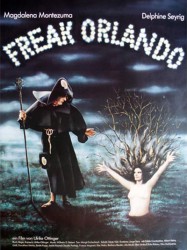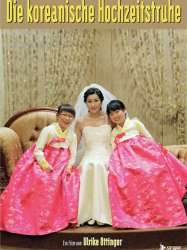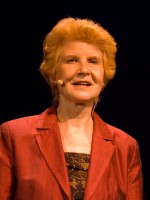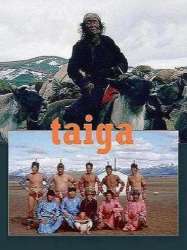Ulrike Ottinger est une Actrice, Réalisatrice, Scénariste, Producteur, Directeur de la Photographie, Créateur de production et Cinématographie Allemande née le 6 juin 1942 à Constance (Allemagne)

Ulrike Ottinger (born 6 June 1942) is a German filmmaker, documentarian photographer and professor at European Graduate School in Saas-Fee, Switzerland.
From 1962 to 1968, she worked as a freelance artist in Paris and studied etching with Johnny Friedlaender among other studies. They participated in several exhibitions.
Film career
In 1966 she wrote her first screenplay, entitled Die Mongolische Doppelschublade.
Ottinger returned to West Germany in 1969 and, in cooperation with the Film Seminar at the University of Konstanz, founded the film club "Visuell", which she directed until 1972. She also headed a gallery and the associated "galeriepress”, where they edited works by contemporary artists.
During this time she met Tabea Blumenschein and Magdalena Montezuma, both of whom have been cast as lead actresses in her films since 1972. Ottinger developed her own bizarre surrealist film-style, which among other things, was marked by widespread abandonment of a linear plot and instead linger long in individual scenes, which in turn make überstarke and extravagant costumes of the imagination mostly female cast artfully to own collages were designed.
She directed and did stage design for Elfriede Jelinek's Clara S. at the Württembergisches Staatstheater in Stuttgart in 1983, and did the same for Jelinek's Begierde und Fahrerlaubnis in Graz in 1986. In 1989, her film Joan of Arc of Mongolia was entered into the 39th Berlin International Film Festival.
In 2003, Ottinger was selected for a solo exhibition at the Renaissance Society. Titled South East Passage, the work "is in three chapters - a travelogue of the artist's journey from southeast Poland to the Bulgarian shores of the Black Sea and a portrait of two coastal cities, Odessa and Istanbul". South East Passage was the first of a two-part series of exhibits exploring Eastern European video work.
On the occasion of the 2009 New York premiere of The Korean Wedding Chest, with Ottinger to be in attendance, The New York Times characterized the director as, "[d]uring the 1980s heyday of the New German Cinema, having constituted a one-woman avant-garde opposition to the sulky male melodramas of Wenders, Fassbinder and Herzog, her films being long, discursive and wildly inventive."
Ottinger’s films, with their preference for the Far Eastern formal language is visible, turned in the following decades, some unconventional documentaries about life in various Asian regions. Ottinger directed the upcoming Horror-Drama film Die Blutgräfin, which based on the life of Elisabeth Bathory.
Personal life
She has resided in Berlin since 1973. Ottinger also works as a photographer.
Source : Wikidata
Ulrike Ottinger

- Infos
- Photos
- Meilleurs films
- Famille
- Personnages
- Récompenses
Nationalité Allemagne
Naissance 6 juin 1942 (82 ans) à Constance (Allemagne)
Récompenses Chevalier de l'ordre du Mérite de la République fédérale d'Allemagne
Naissance 6 juin 1942 (82 ans) à Constance (Allemagne)
Récompenses Chevalier de l'ordre du Mérite de la République fédérale d'Allemagne
Biographie
From 1959 she was a visiting student at the Academy of Arts in Munich and worked as a painter. She is the daughter of the artist-painter Ulrich Ottinger.From 1962 to 1968, she worked as a freelance artist in Paris and studied etching with Johnny Friedlaender among other studies. They participated in several exhibitions.
Film career
In 1966 she wrote her first screenplay, entitled Die Mongolische Doppelschublade.
Ottinger returned to West Germany in 1969 and, in cooperation with the Film Seminar at the University of Konstanz, founded the film club "Visuell", which she directed until 1972. She also headed a gallery and the associated "galeriepress”, where they edited works by contemporary artists.
During this time she met Tabea Blumenschein and Magdalena Montezuma, both of whom have been cast as lead actresses in her films since 1972. Ottinger developed her own bizarre surrealist film-style, which among other things, was marked by widespread abandonment of a linear plot and instead linger long in individual scenes, which in turn make überstarke and extravagant costumes of the imagination mostly female cast artfully to own collages were designed.
She directed and did stage design for Elfriede Jelinek's Clara S. at the Württembergisches Staatstheater in Stuttgart in 1983, and did the same for Jelinek's Begierde und Fahrerlaubnis in Graz in 1986. In 1989, her film Joan of Arc of Mongolia was entered into the 39th Berlin International Film Festival.
In 2003, Ottinger was selected for a solo exhibition at the Renaissance Society. Titled South East Passage, the work "is in three chapters - a travelogue of the artist's journey from southeast Poland to the Bulgarian shores of the Black Sea and a portrait of two coastal cities, Odessa and Istanbul". South East Passage was the first of a two-part series of exhibits exploring Eastern European video work.
On the occasion of the 2009 New York premiere of The Korean Wedding Chest, with Ottinger to be in attendance, The New York Times characterized the director as, "[d]uring the 1980s heyday of the New German Cinema, having constituted a one-woman avant-garde opposition to the sulky male melodramas of Wenders, Fassbinder and Herzog, her films being long, discursive and wildly inventive."
Ottinger’s films, with their preference for the Far Eastern formal language is visible, turned in the following decades, some unconventional documentaries about life in various Asian regions. Ottinger directed the upcoming Horror-Drama film Die Blutgräfin, which based on the life of Elisabeth Bathory.
Personal life
She has resided in Berlin since 1973. Ottinger also works as a photographer.
Le plus souvent avec
Filmographie de Ulrike Ottinger (6 films)
Actrice

Cinématon (1978)
Réalisé par Gérard Courant
Genres Documentaire
Acteurs Fernando Arrabal, Raphaël Bassan, Yann Beauvais, Roberto Benigni, Juliet Berto, Sandrine Bonnaire
Rôle N°104
Note60%





Cinématon est une série cinématographique de portraits filmés montrant une personnalité des arts, de la culture ou du spectacle, en un seul gros plan fixe et muet de 3 minutes et demie, dans lesquels elle est libre de faire ce qu'elle veut.
Réalisatrice

Johanna d'Arc of Mongolia (1989)
, 2h45Réalisé par Ulrike Ottinger
Genres Drame, Comédie, Aventure
Thèmes Transport, Le train
Acteurs Inés Sastre, Badema, Irm Hermann, Peter Kern, Delphine Seyrig
Note68%






Freak Orlando (1981)
, 2h6Réalisé par Ulrike Ottinger
Genres Comédie, Fantasy
Acteurs Delphine Seyrig, Magdalena Montezuma, Eddie Constantine, Jackie Raynal, Dan van Husen, Ula Stöckl
Note58%





Scénariste

Johanna d'Arc of Mongolia (1989)
, 2h45Réalisé par Ulrike Ottinger
Genres Drame, Comédie, Aventure
Thèmes Transport, Le train
Acteurs Inés Sastre, Badema, Irm Hermann, Peter Kern, Delphine Seyrig
Rôle Ecrivain
Note68%






Freak Orlando (1981)
, 2h6Réalisé par Ulrike Ottinger
Genres Comédie, Fantasy
Acteurs Delphine Seyrig, Magdalena Montezuma, Eddie Constantine, Jackie Raynal, Dan van Husen, Ula Stöckl
Rôle Ecrivain
Note58%





Production
Caméra
 , 1h22
, 1h22Réalisé par Ulrike Ottinger
Genres Documentaire
Acteurs Ulrike Ottinger
Rôle Directeur de la Photographie
Note68%





 Connexion
Connexion




